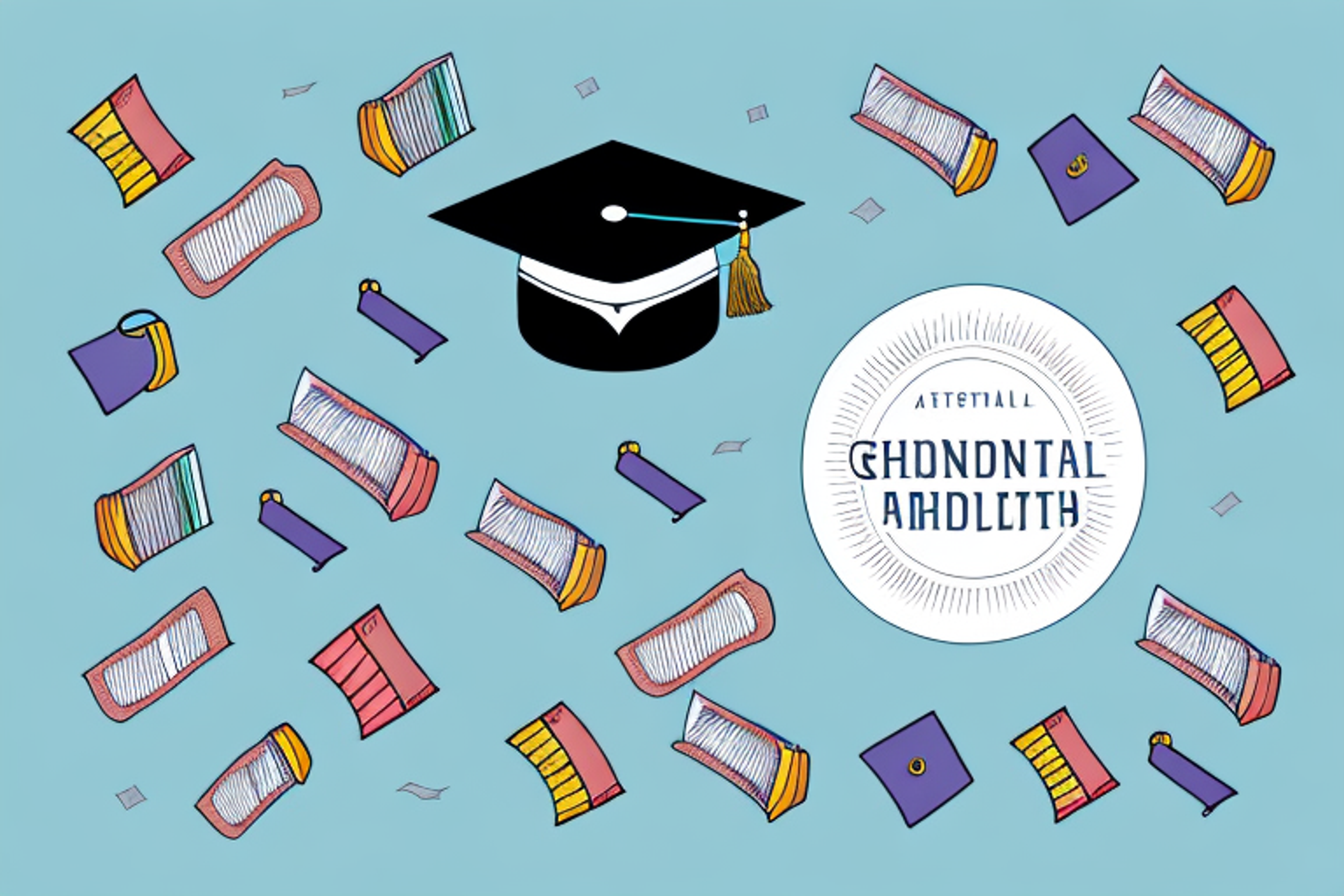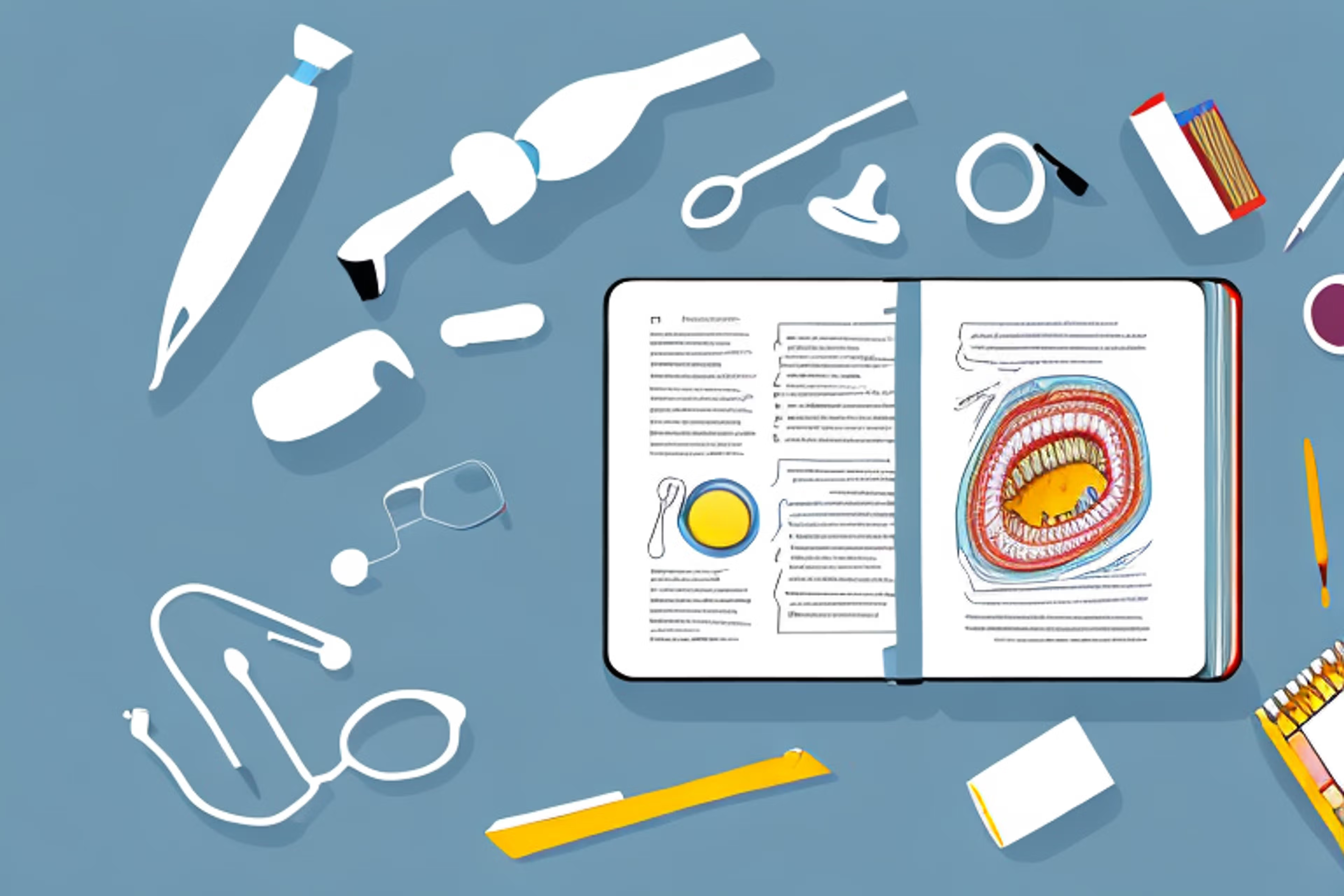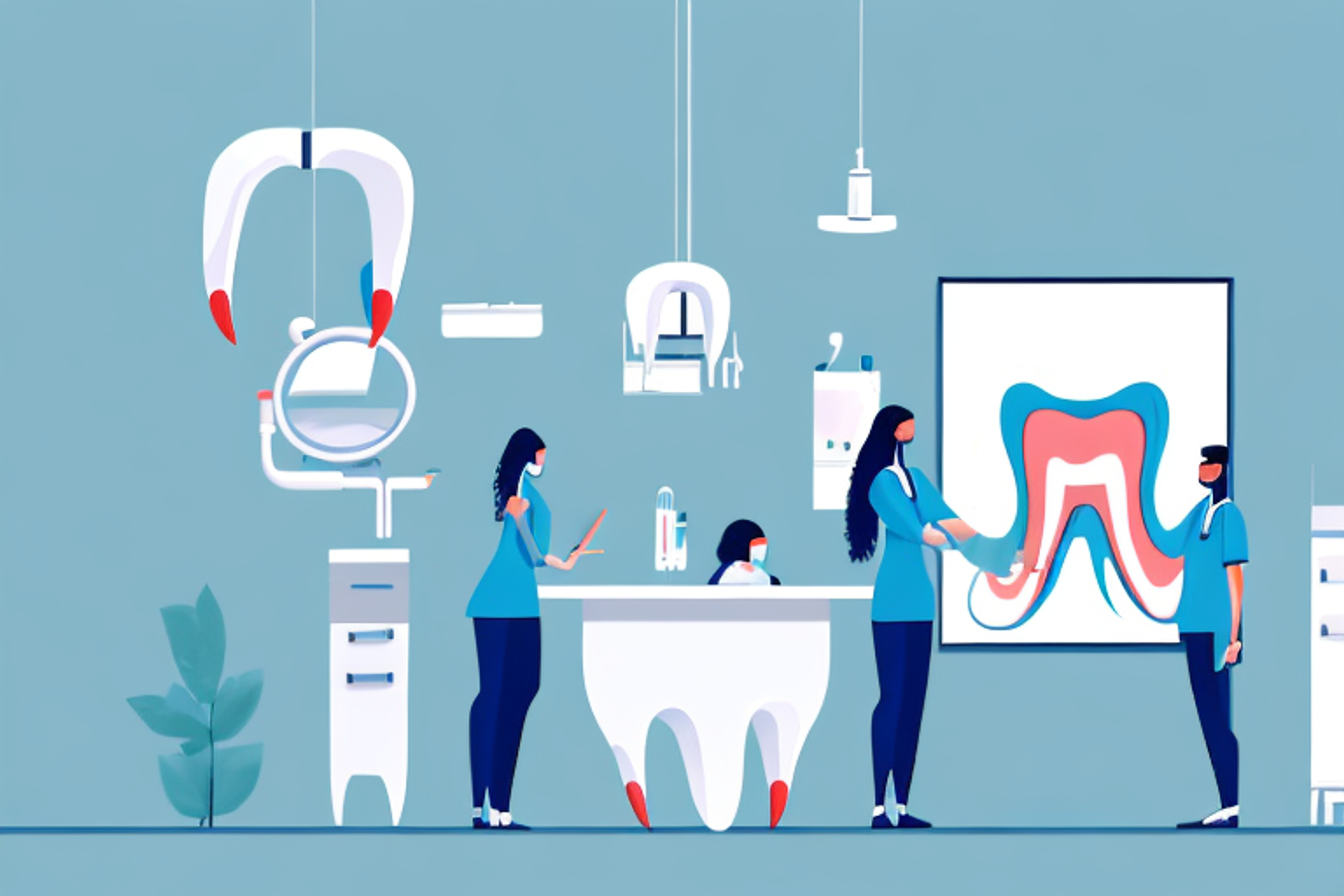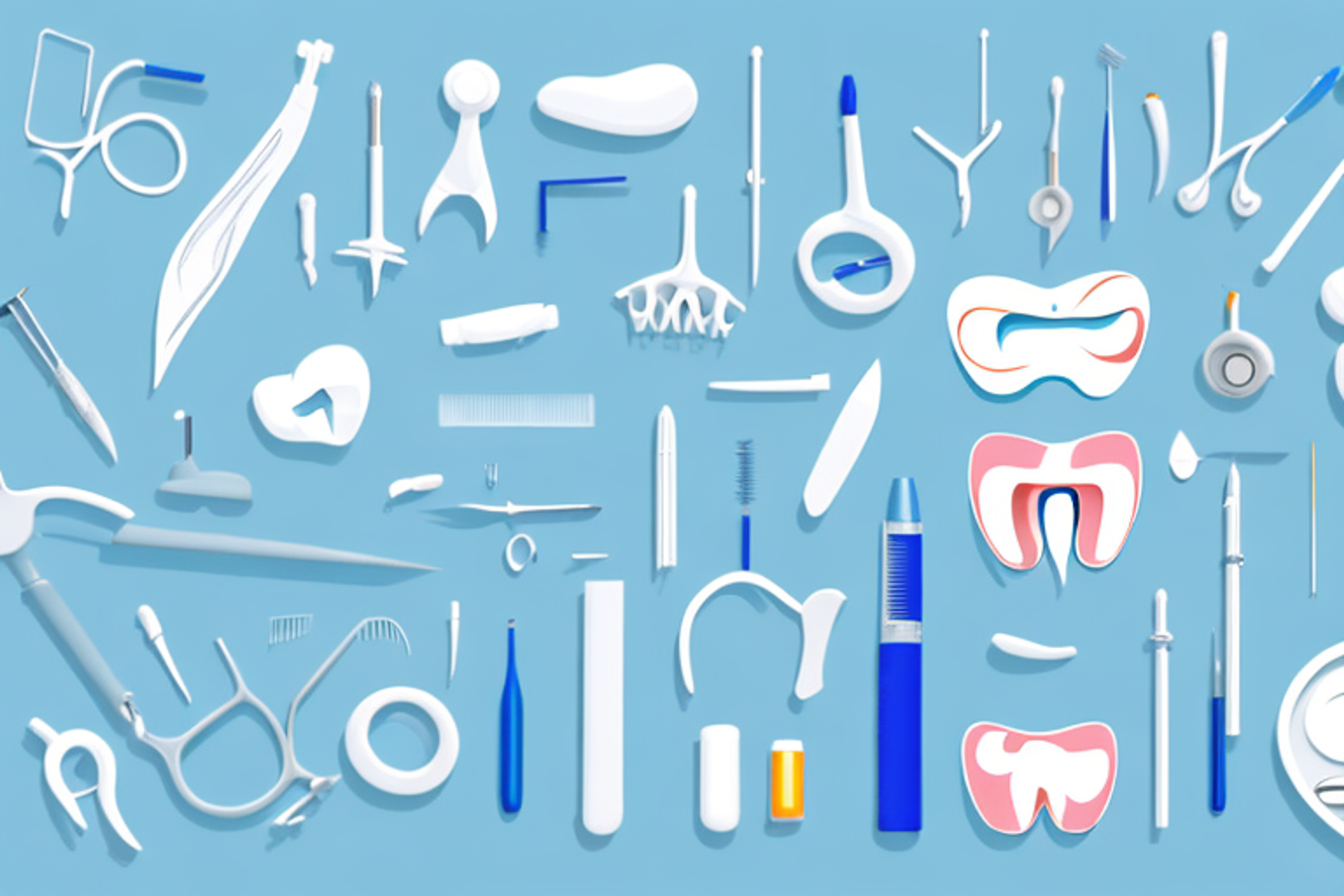How to Apply to Dental School as a Non-Traditional Applicant: Tips and Strategies for Success
Are you a non-traditional applicant looking to apply to dental school? This article provides valuable tips and strategies for success, including advice on how to stand out in your application, how to prepare for interviews, and more.
Posted April 10, 2025

Table of Contents
Applying to dental school can be a daunting process, especially for non-traditional applicants who have unique backgrounds and circumstances. In this article, we will provide tips and strategies for non-traditional applicants to successfully navigate the dental school admissions process.
Understanding the Definition of a Non-Traditional Applicant for Dental School
Non-traditional applicants are those who do not follow the typical path of applying to dental school right after graduating from college. This can include individuals who have taken a gap year or gap years, have changed careers, or have taken time off to raise a family. Non-traditional applicants may also have diverse backgrounds, including military service or work experience in other fields.
Non-traditional applicants often bring unique perspectives and experiences to the dental school community. They may have developed skills and qualities that are valuable in the field of dentistry, such as leadership, communication, and problem-solving abilities. Additionally, non-traditional applicants may have a greater sense of purpose and motivation for pursuing a career in dentistry, having taken the time to explore their interests and passions before committing to the field.
Advantages and Disadvantages of Being a Non-Traditional Applicant
As a non-traditional applicant, you may have unique advantages and disadvantages in the dental school admissions process. One advantage may be a diverse skillset and life experience that can set you apart from other applicants. However, a disadvantage may be competing against applicants who have dedicated their entire undergraduate career to preparing for dental school.
Another advantage of being a non-traditional applicant is that you may have a stronger sense of motivation and determination to succeed in dental school. Many non-traditional applicants have taken a break from their education or have pursued other careers before deciding to pursue dentistry, which can give them a renewed sense of purpose and drive. On the other hand, a disadvantage may be that non-traditional applicants may have more difficulty adjusting to the academic demands of dental school, especially if they have been out of school for a long time.
Experience Required for Non-Traditional Applicants to Dental Schools
Non-traditional applicants are not required to have specific experience to apply to dental school, but having experience in related fields such as healthcare or research can be beneficial. It is important to carefully review the admission requirements of each dental school to which you plan to apply.
Additionally, non-traditional applicants may also want to consider participating in dental shadowing or volunteering at a dental clinic to gain exposure to the field and demonstrate their interest in pursuing a career in dentistry. Some dental schools may also require a certain number of hours of shadowing or volunteering as part of their admission requirements.
Common Misconceptions About Applying as a Non-Traditional Applicant to Dental School
There are several misconceptions about applying to dental school as a non-traditional applicant. One misconception is that dental schools only accept traditional applicants who have followed a specific path. This is not true, and many dental schools actively seek non-traditional applicants who can contribute unique perspectives to the classroom.
Another common misconception is that non-traditional applicants are at a disadvantage compared to traditional applicants. However, this is also not true. Non-traditional applicants often have valuable life experiences and skills that can make them stand out in the application process. For example, if you have worked in a healthcare setting or have experience in a related field, this can demonstrate your commitment to the dental profession and your ability to work in a team.
Identifying the Right Dental Schools for Non-Traditional Applicants
Researching and identifying the right dental schools for non-traditional applicants is an important step in the application process. Look for dental schools that value diversity and have a history of accepting non-traditional applicants. It is also important to consider factors such as location, cost, and academic program.
Another important factor to consider when identifying dental schools for non-traditional applicants is the availability of support services. Non-traditional applicants may have unique challenges, such as balancing family or work responsibilities with their academic pursuits. Look for schools that offer resources such as counseling, tutoring, and flexible scheduling options to help non-traditional students succeed.
Additionally, it can be helpful to reach out to current students or alumni who were non-traditional applicants themselves. They can provide valuable insights into the application process and what it's like to attend the school as a non-traditional student. Consider attending information sessions or networking events to connect with these individuals and learn more about their experiences.
Tips on Choosing the Right Major for Non-Traditional Applicants
Choosing the right major as a non-traditional applicant can be crucial in preparing for dental school. While there is no specific major required for dental school, it is important to choose a major that aligns with your interests and strengths. Majors such as biology, chemistry, and biochemistry can provide a strong foundation for dental school coursework.
However, it is also important to consider majors outside of the sciences. Non-traditional applicants may have unique experiences and skills that can be applied to other majors, such as psychology, sociology, or business. These majors can provide a different perspective and skill set that can be valuable in the dental field, especially in areas such as patient communication and management.
How to Gather Strong Letters of Recommendation as a Non-Traditional Applicant
Having strong letters of recommendation is crucial in the dental school admissions process. As a non-traditional applicant, it is important to choose recommenders who are familiar with your unique experiences and skills. Reach out to professors, mentors, or supervisors who can speak to your academic and professional abilities.
Additionally, consider asking individuals who can speak to your personal qualities, such as your work ethic, leadership skills, and ability to work in a team. This can include volunteer coordinators, community leaders, or colleagues who have worked closely with you.
When requesting a letter of recommendation, provide your recommenders with a copy of your resume, personal statement, and any other relevant materials. This will help them understand your background and goals, and enable them to write a more personalized and effective letter.
Crafting a Strong Personal Statement as a Non-Traditional Applicant
Your personal statement is an opportunity to showcase your unique qualifications and experiences to dental school admissions committees. As a non-traditional applicant, focus on highlighting your diverse background and how it has prepared you for dental school. It is also important to demonstrate your passion for the field of dentistry.
One way to demonstrate your passion for dentistry is by discussing any volunteer work or shadowing experiences you have had in the field. This can show admissions committees that you have a genuine interest in the profession and have taken steps to gain hands-on experience.
Additionally, as a non-traditional applicant, you may have valuable life experiences that can set you apart from other applicants. Consider discussing how your previous career or personal experiences have prepared you for the challenges of dental school and how they have shaped your desire to pursue a career in dentistry.
Preparing for the Dental Admission Test (DAT) as a Non-Traditional Applicant
Preparing for the Dental Admission Test (DAT) can be challenging for any applicant, but as a non-traditional applicant, you may have unique challenges to overcome. Create a study schedule that best suits your lifestyle and commitments. Consider enrolling in test preparation courses or study groups to help you prepare for the DAT.
Another important aspect to consider when preparing for the DAT as a non-traditional applicant is to review the exam format and content thoroughly. The DAT consists of four sections: natural sciences, perceptual ability, reading comprehension, and quantitative reasoning. Make sure to familiarize yourself with the types of questions and format of each section to better prepare yourself for the exam.
Additionally, as a non-traditional applicant, you may have unique experiences and skills that can set you apart from other applicants. Be sure to highlight these in your application and personal statement. Admissions committees value diversity and unique perspectives, so showcasing your individuality can work in your favor.
Strategies for Overcoming Age Bias When Applying to Dental School
As a non-traditional applicant, you may face age bias from dental school admissions committees. It is important to address this bias in your personal statement and during interviews. Highlight your unique experiences and how they have prepared you for the rigors of dental school.
A Look at Alternative Pathways to Dental School for Non-Traditional Applicants
There are alternative pathways to dental school for non-traditional applicants, including post-baccalaureate programs or master's programs in dental fields. These programs can provide additional preparation and experience for non-traditional applicants before applying to dental school.
Funding Your Dental Education as a Non-Traditional Applicant
Funding your dental education can be a challenge for non-traditional applicants. Utilize resources such as scholarships, grants, and loans to fund your education. It is also important to carefully consider the return on investment for your dental degree.
Preparing for Interviews as a Non-Traditional Applicant to Dental School
Preparing for interviews as a non-traditional applicant is crucial to success in the dental school admissions process. Research the dental school and its values, and be prepared to discuss your unique experiences and skills. Practice common interview questions with friends or colleagues.
Timeline and Checklist for Applying to Dental School as a Non-Traditional Applicant
Applying to dental school as a non-traditional applicant requires careful planning and organization. Create a timeline and checklist of important deadlines and requirements for each dental school to which you plan to apply. Utilize resources such as advisors, mentors, or online forums to help guide you through the application process.
By following these tips and strategies, non-traditional applicants can successfully apply to dental school and pursue their dreams of becoming dental professionals.












